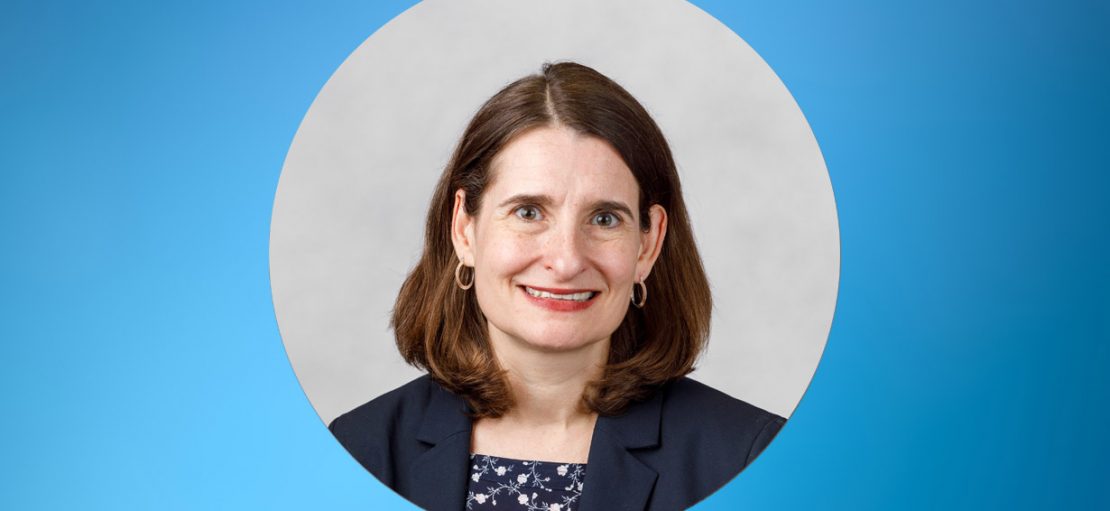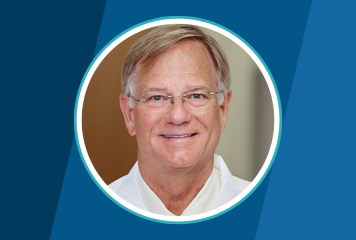Heather L. Heiman, MD, is an Associate Professor of Medicine and Medical Education at the University of Illinois College of Medicine. She serves as Interim Associate Dean for Undergraduate Medical Education and maintains an outpatient practice within the Academic Internal Medicine division. She is also chair of the ABIM Internal Medicine Longitudinal Knowledge Assessment (LKA®) Approval Committee and previously served on the Internal Medicine Board Exam Committee from 2014 to 2020 and the Internal Medicine Exam Writing Committee from 2013 to 2014. Dr. Heiman joined the ABIM Board of Directors in July 2024.
What was your path to becoming an internal medicine physician? What do you find most rewarding about the work you do?
I followed a circuitous path. As I like to tell my students, the typical path through medical school can feel like a conveyor belt, but there are ways to make a change. I went to medical school in the mid-1990s, when Hillary Clinton was trying to push through health care reform. Primary care as a field was something people were very excited about. Even though her reform didn’t succeed at that time, I was always thinking about becoming a general internist, but I developed this interest in psychiatry because of all the fascinating patients and teaching I got. I matched into psychiatry and did an internship at Cambridge Health Alliance in Massachusetts, a safety net hospital, and most of that was inpatient medicine combined with some emergency medicine, and I loved it. I felt a lot of self-efficacy by the end of the year. As I considered how to continue working in medicine, I knew all these things like how to read an EKG, how to put a central line in, and I wanted to continue working with all of the body and not focus on just the brain. So that’s how I got into internal medicine rather than psychiatry.
As for what’s most rewarding, the two things that make me happiest are, first, when my patients feel heard and express that they are surprised I’m taking so much time to listen to their story. They feel a sense of relief, and that is therapeutic for them. Second, as a medical educator, when my students feel heard and cared for, that is also very rewarding.
You’ve been deeply involved in the work of assessment creation during formative years for ABIM. How do you think ABIM has changed since you first became involved in 2013? What are your thoughts on where ABIM is heading now?
I became involved when there was a lot of conversation about “Part 4” (Improving Health and Healthcare) of the Maintenance of Certification (MOC) program. That was a very innovative attempt to examine more than knowledge, but it was so hard to assess in terms of understanding the quality of work the diplomate was doing. ABIM received a lot of feedback from the community that, while well-intentioned, it was taking too much time from physicians and simply wasn’t adding value, and so they decided they would recognize and reward those who took part in those activities, but would no longer require it moving forward. I believe the refocusing on assessing medical knowledge was the right move, and that’s the core value ABIM provides.
At that time, we only had the traditional, 10-year MOC exam format. When I joined ABIM had just begun updating its exam blueprints so they would reflect what a physician was doing in practice rather than just in residency. Throughout this whole decade, ABIM has been constantly evolving its assessment offerings to meet the needs and expectations of diplomates while staying true to the mission of ensuring that the public can be confident in the medical knowledge of the physicians who are caring for them.
I’m very appreciative of the Longitudinal Knowledge Assessment (LKA®). It’s been fun to be there from the start of that, and now I’m actually taking it myself. I also think it’s great to see the new focus on incorporating health equity in questions; it is something we’ve always talked about, how to have questions that represent the patients we see in practice, and use those questions to assess whether physicians are able to provide care for populations that may not look like them. We’ve always been thinking about that, but we have new ways of doing that with the fairness initiative, intended to be sure examinees of all different demographics get an equal shot to show their knowledge.
I’m really interested in making sure that with the LKA we are able to test the effectiveness and validity of questions, and have questions on new topics with a rationale so that if someone gets the question wrong they’re still learning. We should include questions about new treatments, not so new that they are only shown effective in one study, but treatments that are guideline-based, with high-level evidence. Ensuring examinees have this knowledge can change patient outcomes.
What have you learned or what first surprised you since you became involved with the Exam Committee and Approval Committee? What has been most valuable about that experience so far?
It surprised me how much skill is required to write a multiple-choice question and how many important things there are to know, not all of which can be written as multiple-choice questions. Some things we need to know as physicians don’t lend themselves to a single best answer. Learning all of that was really interesting.
It surprised me how fun it is to write questions alongside really brilliant colleagues across the country, and how much you can learn doing that and how it improves the care you’re giving your own patients.
As you approach your work with the Board of Directors, what issues are most important to you as a physician? What do you think are the top issues for your peers and colleagues?
What is most important to me is to hear and understand what the most important issues are for other physicians and particularly young physicians out there. For instance, I’m not as knowledgeable as some people about burnout, but I am very concerned about its effect driving people out of the workforce or into non-patient care activities. I know what it’s like to see ten or 12 incredibly complex patients in a morning clinic and then get a message later that week that my notes aren’t done. I’m hopeful that ABIM can be innovative about ways to address this by making assessment less burdensome. I really want us to think about how we can use AI and other technologies to optimize data already being generated in practice as a way to assess knowledge and eliminate redundancies as a way to avoid burdening physicians.
Also, like a lot of other people on the Board and the ABIM Foundation, I’m very concerned about the mistrust of evidence-based medicine that was growing for a long time and just exploded during the pandemic.
Finally, what is important to my colleagues and essentially all physicians is access and equity for patients and medical trainees, making sure we have a diverse workforce, that people can see a capable doctor no matter where they live.
What do you think most physicians might not know about the work ABIM does? What would you want them to know above all?
I think many physicians don’t realize that ABIM, both staff and governance, are listening so much to diplomates and societies, interfacing with GME programs and nurturing those relationships. We are part of the community trying to get it right so certification enhances the quality of care. They might also not realize how much research has been done both within and outside ABIM to prove that certification is associated with better quality of care.
What do you most want diplomates to know about you and the perspective you bring to the Board?
I think I was chosen because of my knowledge of assessments and because of being an educator and administrator, and I’m bringing these perspectives. I know that learning can be very fun but also painful or exhausting, like a hard workout. We also know that answering a question and not being sure of the answer makes learning very sticky. I’m bringing the perspective that it’s OK to try and not get it right the first time, and get stronger because of that. Because of my work in medical education, probably the biggest perspective I bring is that of young learners and early career physicians. I’m looking forward to serving on the Board; I think we’re all going to challenge each other’s opinions and I’m going to learn a lot.



